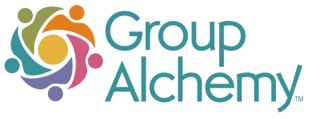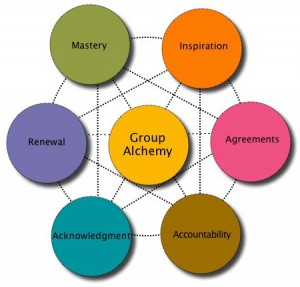Consider the following points when you decide how to get everyone on board with the group’s purpose and identity.
1. Don’t be too quick to dismiss this person.
They may have an important perspective that needs to be considered but the group is avoiding. Does their point of view actually expose a bigger way to think about your work? For instance, some people automatically go to worst-case-scenario thinking when confronted with a new situation. This can seem negative to people who are enthusiastic about the idea. But the different point of view might help to anticipate problems and consider options that will improve the result. Or they might be the source of valuable information about what’s working and not working in the group. Find out what their point of view is. Have they been heard? Are there any old unresolved issues that keep them from feeling a part of things?
2. Have a powerful inspiration event in your group.
Have you recently reviewed your inspiration as a group? Is everyone in the same conversation about what you are committed to? Is it clear and unambiguous? A visioning or renewal event is an opportunity to draw everyone more deeply into something that they can care about and commit to. Be sure to take time to help everyone explore their personal inspiration and how that connects with the group. Speaking with them individually might be important. And the power of the group conversation that allows everyone to define their role in the group in together can create a big shift in the level of responsibility people feel to each other and the group’s cause. The so-called “difficult” person might become your biggest champion.
3. Seize the opportunity.
A breakdown, or what some call a “difficult person,” can be a valuable opportunity to create a stronger culture that truly encourages, supports and rewards commitment to your vision and responsibility for your success. You will strengthen the group’s confidence in itself and your core values will be renewed.
Paying attention to this and handling it well is one of the best things you can do for everyone – and for the results you want to create.
I will address this further in the next post.

 My own struggle led me to search for the formula for creating successful work systems. And now that I’ve studied this question for thirty years I’m quite sure that we can create high-quality relationships while producing great results in the world. It’s not just a matter of chance or of particular personalities who happen to be in the group.
My own struggle led me to search for the formula for creating successful work systems. And now that I’ve studied this question for thirty years I’m quite sure that we can create high-quality relationships while producing great results in the world. It’s not just a matter of chance or of particular personalities who happen to be in the group.